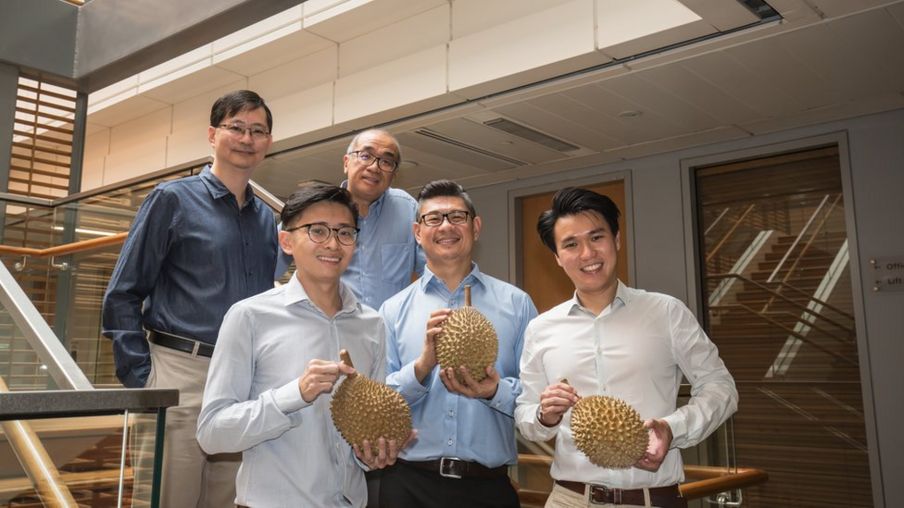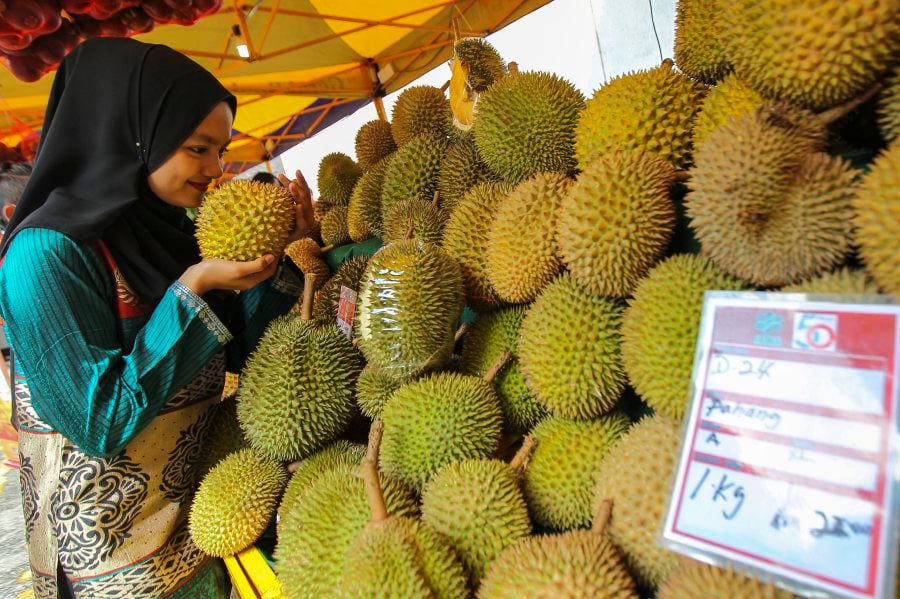Scientists have answered one of nature’s most pungent questions: what gives the world’s smelliest fruit its distinctive aroma.
Scientists in Singapore said on Monday they have mapped the genome of the durian, known throughout Southeast Asia as the “king of fruits” for its unique smell, flavor and formidable spiny appearance.
They identified a group of genes responsible for odor compounds called volatile sulfur compounds, and found that these genes become highly activated as the fruit ripens, driving its unusual smell.

“The durian smell has been described as a mix of an onion-like sulfury aroma with notes of sweet fruitiness and savory soup-seasoning,” said geneticist Bin Tean Teh, deputy director of the National Cancer Center Singapore, co-leader of the study, to Reuters.
He added, “A key component of the durian smell are volatile sulfur compounds, or VSCs, which have been characterized as decaying, onion-like, rotten eggs, sulfury and fried shallots.”
After three years of research, privately funded by a group of anonymous durian lovers, the five-man team of cancer scientists now have a complete genetic map of the fruit, a world first. Their findings were published in academic journal Nature Genetics.
Unlike other plant species that typically have one or two copies of these genes, this species boasted four copies, demonstrating that VSC production is, as Teh put it, “turbocharged” in durian fruits.
The researchers said this odor may be important to the durian in the wild, helping to attract animals to eat it and disperse its seeds.
Grown in many countries across tropical South East Asia, the spiky, stinky durian is an acquired taste.
“Most of us in Singapore have grown up with the durian, and we are very familiar with it,” said geneticist Patrick Tan, a professor at Duke-NUS Medical School in Singapore to Reuters.

“However, even within the same family, there are individuals that love the taste, while others have learned to simply tolerate it, especially during durian season. For those who have never experienced durian before, it can indeed elicit opposing emotions of devotion and revulsion.”
"A durian without its smell is nothing but an empty shell with no essence," wrote Singaporean Richie Liang on Facebook as quoted by BBC, who also compared "a durian without its unique smell" to "a human being who has lost his or her soul".
The researchers said there are at least 30 other durian species, some edible, some inedible, and some with other distinctive features. Several are endangered.
Durian is economically important, with imports to China last year worth $600 million to $800 million, the researchers said.


















